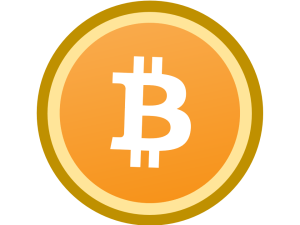It’s no longer exclusively the realm of start-ups and independent enthusiasts. With a string of announcements in recent weeks, major companies are now betting that bitcoin—more specifically, the technology that makes it—will come to underlie our everyday lives and the global financial system.
In the past six months, “everybody realized that bitcoin’s more than a currency,” Brian Kelly of Brian Kelly Capital said. “Everybody had their ‘aha’ moment, and investors with many millions of dollars to spend are starting to see how it can be used.”
CNBC reported six months ago that investors and technologists increasingly think the technology underpinning bitcoin—called “blockchain”—could ultimately be more revolutionary than the currency.
Now, more than a dozen big banks and tech firms have dived into the field, including Seagate, Nasdaq, Overstock, IBM, Samsung, UBS,Barclays, Banco Santander and Intel—to name a few.
Blockchain is what makes bitcoin tick: It serves as an unalterable record of all bitcoin transactions. To instill faith that no one can double-spend their currency (one of the chief concerns about a digital token as opposed to physical bills) this ledger needs to be completely secure from tampering. It achieves this feat—and has so far proven unhackable—by regularly syncing with servers across the globe.
It is that unalterable—and transparent—record-keeping function that makes blockchain the potential foundation of any number of other technologies.
Levels of commitment vary among firms. Seagate invested in Ripple Labs to become an “active participant” in the blockchain space, a firm executive told CoinDesk. In a proof-of-concept paper, IBM and Samsung said blockchain technology could add an important level of security to devices in the emerging “Internet-of-Things” space, for example “smart” appliances.
On the finance side of the equation, Nasdaq launched an “enterprise-wide initiative” to leverage the blockchain. This is expected to begin later this year by using the technology to build out the equity management ledger on the Nasdaq Private Market platform, the company said.
Nasdaq CEO Robert Greifeld told the Financial Times he wants his company to be a leader in the field. But there will be competition, as several finance firms have all sought exposure to the blockchain.
The financial community was slow to come around to this technology—which promises to provide security for money and information transfers without a trusted middleman—but they are beginning to embrace it as a cost-saving tool, Kelly said.
The blockchain tech has even attracted the attention of Virgin’s Richard Branson, who this week hosted the Blockchain Summit on his private island in the British Virgin Islands. Jeff Garzik, one of five bitcoin core developers who have taken over maintenance of the technology from mysterious creator Satoshi Nakamoto, spoke with CNBC from that event.
“Even as far along as we are, it’s still the early days,” Garzik said. “It’s still the pre-web, pre-1990 Internet.”
Here are some of the big firms looking for a piece of the blockchain:
Garzik, who now works full-time at Dunvegan Space Systems, predicted the myriad applications of the blockchain will eventually help form the infrastructure for a spate of new technologies, much like Transmission Control Protocol/Internet Protocol (TCP/IP)—the basic communication language of the Internet—does now.
“You don’t have a conversation today about TCP/IP: This is the lowest layer of a money network,” he said. “You’re not going to say ‘Let’s adopt bitcoin,’ you’re going to say ‘Let’s use this money layer infrastructure.’ You’ll talk about the money web, or something of that nature, you won’t talk about the blockchain itself.”
Will bitcoin survive?
It’s a common refrain among a portion of the business community that they love blockchain, but not bitcoin—implying the notoriously volatile currency is an unsound investment at the same time its technology could change the world. Bitcoin enthusiasts, however, emphasize that you cannot have one without the other.
Although that’s technically untrue—a new blockchain could be based on a new currency—nearly every conception of the technology requires some sort of token to function. And bitcoin is unlikely to be overtaken: Its mass adoption and comparatively lengthy history mean it would be several orders of magnitude more secure than any upstart coin.
Separate blockchains have already popped up for various applications, but most periodically tie back to the bitcoin data chain in order to increase their own security.
And for its part as a currency, bitcoin is maturing: Firms are working to popularize derivatives, and a bitcoin-tied investment vehicle began trading on the over the counter OTCQX marketplace.
Source : http://www.cnbc.com/id/102707183
Click on the bitcoin logo below to buy, use or accept bitcoin. Unocoin is India’s most popular bitcoin wallet.
To read the bitcoin white paper, visit: https://bitcoin.org/bitcoin.pdf








